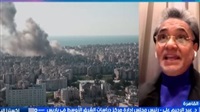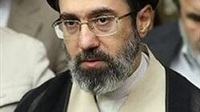Palestinians Threatened With Eviction Can Stay in Their Homes — for Now

Israel’s Supreme Court handed a partial victory on Tuesday to a group of Palestinian families whose looming eviction from their homes in East Jerusalem contributed to the tensions that led to last year’s 11-day Gaza war.
After years of legal struggles, Israel’s highest court accepted the main argument of the families, allowing them to remain in their homes in the Sheikh Jarrah neighborhood until the dispute over the ownership of the property is settled — a process that experts said could take years, if it gets settled at all.
In the interim, the court ruled, the four families can remain in their houses as protected tenants and pay a reduced annual rent of about $750 each into a trust account, with the money eventually going to whoever wins the ownership rights.
The court decision defused a potentially explosive issue, even as tensions in East Jerusalem remain high.
While Sheikh Jarrah is now predominantly Arab, a small Jewish community lived in the neighborhood from the late 19th century until the war leading to the establishment of Israel in 1948, after which the area fell under Jordanian control.
Israel captured the eastern part of the city, including Sheikh Jarrah, from Jordan in the 1967 war, then annexed it in a move that most countries of the world never recognized.
The Palestinian families and activists challenging the evictions argued that they were part of a wider Israeli effort to displace Palestinians from East Jerusalem in order to cement Israel’s claim to sovereignty there.
The Supreme Court judges wrote in their ruling on Tuesday that “at the core of the process lies the complex history of Jerusalem and the changes of government that took place there.”
In the 1950s, Jordan built houses for Palestinian refugee families in what had been the Jewish compound, though it never transferred ownership to the families. After Israel took control of the area, the ownership was transferred to two Jewish associations, which later sold the rights to a Jewish settlement group.
The Palestinian residents were allowed to stay on as protected tenants on the condition that they paid rent to the new owners, but many of the Palestinian families refused on principle.
For years, the Israeli courts have treated the house-by-house ownership battle as a legalistic property dispute. But the land has powerful attachments to Palestinians and Jews.
The Jewish community in Sheikh Jarrah was centered around a shrine held by Jews to be the ancient tomb of Shimon Hatzadik, or Simeon the Just, a Jewish high priest from the days of the Second Temple. And since Israel captured East Jerusalem in 1967, successive Israeli leaders have promised their capital city would never again be divided.
Palestinians have long demanded East Jerusalem as the capital of a future independent state.
The eviction cases have also highlighted a legal double standard: The families settled in Sheikh Jarrah by Jordan were Palestinian refugees from what is now Israel. While Jewish Israelis can reclaim land they owned in East Jerusalem before 1948, Palestinians have no similar legal recourse to reclaim homes they once owned in what became Israel.
Four months ago, the same four families rejected a compromise proposed by the court along similar lines of the ruling on Tuesday because it did not recognize them as the owners of their homes and it would have required them to pay rent to the settler organizations.
This time, said Sami Arsheid, a lawyer representing the families, since it was a court ruling, “it was not a matter of agreeing or not.”
The families would have to respect the court decision, he said, while being given the chance to prove their ownership without the threat of imminent eviction.
Mr. Arsheid said it was up to the Ministry of Justice to decide how to proceed regarding settling the ownership rights. The process has been “frozen since 1967,” he said, and was not about to be finalized any time soon.
He added that Tuesday’s ruling could affect the cases of several other Palestinian families facing eviction, including nine more from Sheikh Jarrah that are still making their way through the courts.
Itamar Ben Gvir, a far-right member of Parliament who supports the Jewish settlers, decried the court’s decision as a “dark, illegal, undemocratic decision that runs contrary to the values of the rule of law and constitutes a very grave precedent that will be enjoyed by squatters.”
Mr. Ben Gvir recently set up his parliamentary office in a tent in Sheikh Jarrah, in a ploy, he said, to bring more police and security to the area to protect the Jewish settlers from attack, but his presence has ratcheted up tensions there.
The court ruling could help calm the situation in Sheikh Jarrah, which has been the scene of frequent clashes, but violence has recently flared elsewhere in East Jerusalem and the West Bank.
Clashes between Palestinians and the police have occurred at another frequent flash point, Damascus Gate, one of the main entrances to Jerusalem’s Old City. A Palestinian girl was injured there on Monday after being hit in the jaw by a police stun grenade.
Overnight, two Palestinian men were reported killed by Israeli forces during a confrontation in the Jenin refugee camp in the occupied West Bank where border police officers were conducting an arrest raid.
On Tuesday, a third Palestinian man was killed by Israeli army fire in the southern West Bank.
The Israeli military said soldiers spotted two “suspects” approaching an Israeli memorial in the West Bank and fired at them as they fled. One was later declared dead, the military said.









